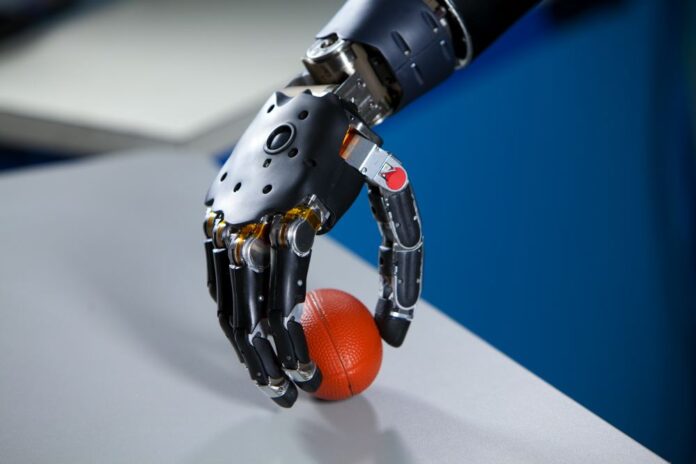After a close friend of theirs had their hand amputated and struggled to function with their prosthetic, two siblings, rising MIT junior Eeshan Tripathii and Cornell Tech alumna Vini Tripathii decided something needed to change, India West reports.
Eeshan states their friend’s prosthetic was “like giving someone the world’s greatest computer, but with a broken keyboard and mouse.”
“The prosthetic was just so inadequate,” Vini told Cornell Tech. “It made it so difficult for her to do simple everyday tasks, and she is someone who is really active and independent,”
The Tripathii siblings combined Eeshan’s computer engineering experience and Vini’s neuro engineering background to develop a low-cost non-invasive, brain-controlled interface that improves upon existing functions of prosthetics.
Through a lot of hard work and extensive research, the duo of engineers created a device that translates brain and muscle signals into commands that a prosthetic hand can use to make gestures and grasp objects. The siblings are not just creating a prosthetic, they are also developing an interface that controls the hand non-invasively.
To support their idea, the siblings turned to the MIT Sandbox Innovation Fund Program. This program connected them to mentors that shaped their long-term research and development strategy.
However, in early 2020, when the coronavirus pandemic first struck, the Tripathii siblings were unable to access the MIT and Cornell Tech labs.
Vini gives a lot of credit to her alma mater.
“It would have been much harder without the guidance I received at Cornell Tech,” Vini told Cornell Tech. “The curriculum and structure and the professors are so wonderful that it made it a lot easier, and the professors are all so open,”
Without these resources, the siblings’ project became more difficult.
Therefore, they created Invictus BCI Incorporated, a company where they could continue to work on their goals at home in New Jersey. Eeshan and Vini are motivated to continue working with their goal in mind.
“I have found that the moment you start working on something that people need, rather than something people want, it becomes impossible to work purely for yourself,” Eeshan told MIT News. “Your motivation grows beyond a personal desire to create a solution.”
Throughout the pandemic, they constantly put work into making the lives of amputees much easier.
AsAmNews has Asian America in its heart. We’re an all-volunteer effort of dedicated staff and interns. Check out our new Instagram account. Go to our Twitter feed and Facebook page for more content. Please consider interning, joining our staff, or submitting a story or making a contribution.


